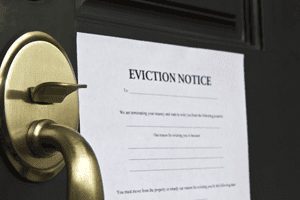
During the 2020 coronavirus period increasing number of commercial landlords are experiencing tenants defaulting on rent. Covid-19 has caused a dilemma for commercial landlords, use a statutory demand, invoke the forfeiture clause or work with the tenant to avoid a vacant building incurring further loss?
We look at the various options open to a commercial landlord:
What is a Statutory Demand?
A statutory demand is a demand for payment of money which must comply with certain statutory requirements, which is served on the tenant. If the tenant is a company, the amount demanded and owed by the tenant must be more than £750.
Commercial landlords have Three options, should their tenant breach the terms of their lease due to non-payment of rent.
When can I use a Statutory demand?
Some landlords misuse statutory demands and wrongly think it is a debt recovery procedure. A statutory demand properly used, is a way to prove that an individual or a company cannot pay their liabilities and are therefore insolvent.
Failing to appreciate that a statutory demand is not to be used as a debt recovery procedure can in some cases cause substantial loss to a creditor if the demand is challenged by the tenant.
Can a statutory demand be defended?
Yes, the tenant may have grounds to have the statutory demand cancelled. The following grounds are sometimes used by tenants to cancel a statutory demand:
- There is have is a valid dispute with the landlord regarding the debt
- The tenant can claim through a Counterclaim that money is owed to them.
- The validity of the statutory demand is challenged
- Tenant claims they owe less than £5,000
Mixed-use premises
They can obtain an order for possession or use the common law remedy of forfeiture. If there are residential premises attached to the commercial premises, for example, a flat upstairs that shares a communal entrance, then the landlord must go to court to obtain an order for possession. The third option is to instruct an Enforcement Agent (Bailiff) to exercise Commercial Rent Arrears Recovery (CRAR)
Should I invoke the Forfeiture clause?
However, for most landlords, forfeiture will be the more attractive option, as it does not require going to court and can be undertaken very quickly once the time specified in the lease has elapsed. This is commonly 21 days. Forfeiture entails the peaceful re-entry to the unoccupied property by a certificated enforcement agent, normally assisted by a locksmith. If the certificated enforcement agent believes there may be a possible breach of the peace during the forfeiture, he will arrange for police support. Once they have secured access to the premises, the locks will be changed and the tenants’, and any sub-tenants’, rights to the property will end.
Notice does not need to be given to the tenants when forfeiting the lease due to non-payment of rent. This will include any items reserved as rent under the terms of the lease such as service charges. If there are any other breaches to the lease, the landlord must give notice to the tenant to allow them time to remedy the breach. Once remedied, the landlord may not then forfeit the lease.
If the landlord demands or accepts rent payments or exercises his right to recover rent arrears under CRAR (commercial rent arrears recovery), this will waive his right to forfeit the lease. The landlord will only regain the right to forfeit if the tenant goes into arrears on a subsequent occasion.
The tenant and sub-tenant do have the right to apply for relief. This should be done “without delay”, normally within 6 months. If their application is successful, the tenancy will be restored.
Commercial rent arrears recovery – the facts
- To carry out CRAR, there must be a written lease in place
- The rent must be at least 7 days overdue
- At least 7 days’ notice of enforcement must be given to the tenant (not including Sundays and bank holidays)
- CRAR must be carried out by certificated enforcement agents
- CRAR can only be used to recover rent, interest, and VAT
The enforcement agents will visit the property. On the day, they are permitted to remove goods belonging to the tenant to cover the amount owed in rent arrears.
It is hoped that, when a tenant receives notice of enforcement, this will elicit payment of the rent owed. If this is not the case, then the next step is for an enforcement agent to visit the property to undertake CRAR.
When enforcement agents can visit
They can visit the property between 06:00 and 21:00 on any day of the week, or alternatively during normal business hours if different. For example, a bar or nightclub might be open from 10 pm-3 am, therefore the enforcement agents are permitted to visit during these hours.
Under CRAR, any goods belonging to the tenant can be removed, although there is an exemption for tools of the trade to the value of £1,350. This is only for sole traders who have exclusive use of the tools, it does not apply to a trader with employees or to partnerships and limited companies.
Sale of goods notice
For the goods to be sold, there needs to be at least 7 clear days’ notice given, this must include the date, time, and place where the sale will take place.
Forfeiture
If the lease has been forfeited, CRAR cannot take place. If the landlord does exercise CRAR he is not permitted to then forfeit the lease during the same quarter.
Should you require the services of a High court enforcement officer, then contact Paul Wingfield by completing our enquiry form. BLA members with commercial property who need advice can speak to the BLA helpline 01293 855700 and ask to talk to our lawyer for free advice.
Author: Paul Wingfield (Member of the Institute of Credit Management)
Date: 30th of May 2020
British Landlords Association – The BLA




